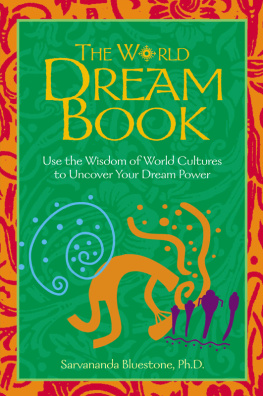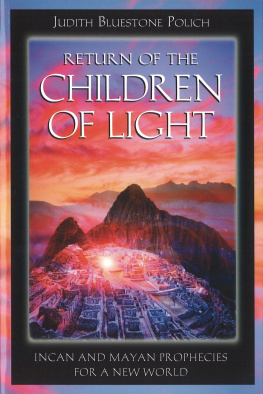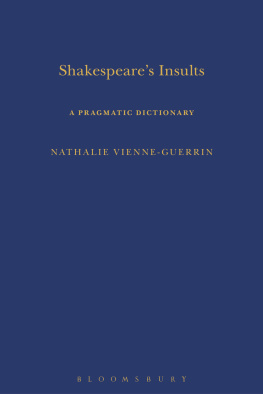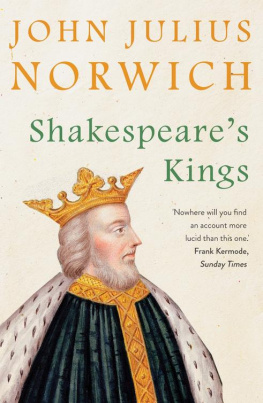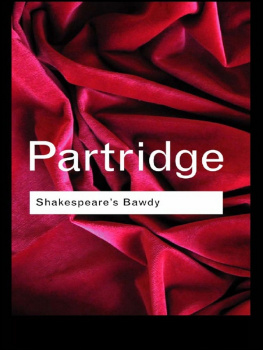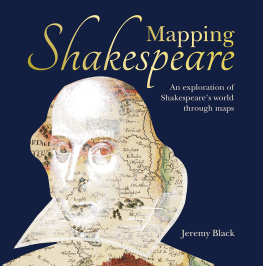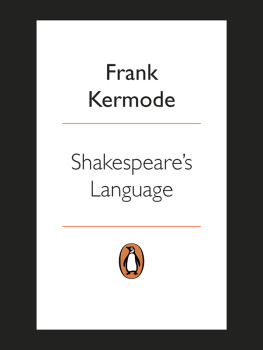Max Bluestone - Shakespeares Contemporaries
Here you can read online Max Bluestone - Shakespeares Contemporaries full text of the book (entire story) in english for free. Download pdf and epub, get meaning, cover and reviews about this ebook. year: 1990, publisher: Prentice Hall, genre: Detective and thriller. Description of the work, (preface) as well as reviews are available. Best literature library LitArk.com created for fans of good reading and offers a wide selection of genres:
Romance novel
Science fiction
Adventure
Detective
Science
History
Home and family
Prose
Art
Politics
Computer
Non-fiction
Religion
Business
Children
Humor
Choose a favorite category and find really read worthwhile books. Enjoy immersion in the world of imagination, feel the emotions of the characters or learn something new for yourself, make an fascinating discovery.

- Book:Shakespeares Contemporaries
- Author:
- Publisher:Prentice Hall
- Genre:
- Year:1990
- Rating:5 / 5
- Favourites:Add to favourites
- Your mark:
- 100
- 1
- 2
- 3
- 4
- 5
Shakespeares Contemporaries: summary, description and annotation
We offer to read an annotation, description, summary or preface (depends on what the author of the book "Shakespeares Contemporaries" wrote himself). If you haven't found the necessary information about the book — write in the comments, we will try to find it.
Shakespeares Contemporaries — read online for free the complete book (whole text) full work
Below is the text of the book, divided by pages. System saving the place of the last page read, allows you to conveniently read the book "Shakespeares Contemporaries" online for free, without having to search again every time where you left off. Put a bookmark, and you can go to the page where you finished reading at any time.
Font size:
Interval:
Bookmark:
4 7 Unable to open image file
Modern Studies in English Renaissance Drama
1961 Englewood Cliffs, N.J. Prentice-Hall, Inc.
-ii-
edited by Max Bluestone Babson Instituteand Norman Rabkin University of California Berkeley
with an introductory essay by Alfred Harbage
-iii-
SHAKESPEARE'S CONTEMPORARIESedited by Max Bluestone and Norman Rabkin
1961 by PRENTICE-HALL, INC. Englewood Cliffs, N.J.
All rights reserved. No part of this book may be reproduced in any form, by mimeograph or any other means, without permission in writing from the publishers.
Library of Congress Catalog Card No.: 61-8221
PRINTED IN THE UNITED STATES OF AMERICA
80772-C
-iv-
To the memory of Dwight L. Durling
-v-
|
T his collection of writings testifies to the continuing vitality of the English Renaissance drama, which, apart from its intimate association with Shakespeare, has elicited in our time a significant body of serious criticism and fruitful scholarship. Together the essays present a comprehensive introduction not only to a number of plays but also to various methods of study indulged by modern students of this drama. Taking their departure from a variety of critical and scholarly persuasions, the studies examine a selection of the best plays produced by Shakespeare's contemporaries, and range widely among such subjects as Renaissance intellectual history, dramatic rhetoric and structure, textual bibliography, and theory of tragedy. Diverse though they be, these writers nevertheless contribute to a communal enterprise that preserves and promulgates an important and precious part of modern man's cultural heritage. If their efforts make more accessible the plays here considered, this anthology will have fulfilled its purpose.
Placing emphasis largely where it has been placed by modern scholars and critics themselves, the collection devotes a considerable share of attention to Marlowe and Jonson. The Marlowe materials tend to weight the collection towards the Elizabethans rather than the Jacobeans, thus "environing Shakespeare," in Felix Schelling's phrase, more fully by his predecessors than by his followers. Wherever possible we have chosen essays which--whatever particular methodology they employ--address themselves to the illumination of individual plays. Given various strictures and our
-vii-
own eclectic aims, we cannot sanction everything we have printed, but we paraphrase Rosalind by charging the partisan reader "to like as much of this [book] as please you." We hope, however, that the bibliographies will redress whatever imbalance our choices have created. Highly selective as they are, the bibliographies largely list writings, like the essays in the collection itself, which deal with individual plays and which suggest lines of further inquiry and study.
We are indebted to the kind encouragement of our teacher, Alfred Harbage, whose Shakespeare and the Rival Traditions and other studies have deepened so effectively the modern understanding of this body of drama. Although they are not responsible for the faults in our work, the following have helped us in various ways: Joanne Bluestone and Martha Rabkin, Jonas A. Barish, Rita and Robert M. Durling, P. H. Fine, Mrs. Frederick B. Harrison, Bernard S. Levy, Maynard Mack, Anne Saxon, Priscilla Shaw, the staffs of the Harvard College Library, the Harvard Medical School Library, the Library of the University of California at Berkeley, the Photographic Department of the Massachusetts Institute of Technology, the Wellesley College Library, and a relay team of amateur radio operators, who attempted in a trying moment to speed our communication with each other.
N. R.
M. B.
-viii-
A mong the plays treated in this volume, Gammer Gurton's Needle and Cambises may be viewed as a kind of prologue, a promise of things to come. Within a few decades, the plays of Lyly and Marlowe began to appear on the London stage. An alert young man of twenty-one who, in 1584, saw the first performance of Lyly's first play, could have seen all the plays of Lyly, Marlowe, Peele, Kyd, and Greene while still in his twenties, and the best of the plays of Jonson, Heywood, Dekker, Marston, Webster, Chapman, Middleton, Tourneur, and Beaumont and Fletcher before he had passed his forties. Meanwhile he could have seen all the plays of Shakespeare, and hundreds more by a score of other playwrights. The prime of Elizabethan drama fitted a span no longer than the prime of a single human life.
My task is to say something about the criticism of this drama, but first a word about its nature and early standing. After centuries of slow preparation, the sudden flowering of the 1580's and the teeming fruitfulness of the next few decades are a marvel of cultural history. This drama has sometimes proved too pungent for classical tastes, but no one has been able to deny at least its plenitude, vitality, and infinite variety. It is deadly to appraise art in terms of the average, since whatever endures is whatever excels the average, but an Elizabethan play chosen almost at random shows certain admirable traits. It will be "dramatic" in the root sense, full of "doings," full enough indeed to furnish out a dozen modern plays. It will be richly peopled, projecting many characters in sharp contrast with each other. It will be truly dialectal, in the sense that the speech will seem to
-ix-
issue from the speakers, not from an author-ventriloquist. And this speech will be colorful, energetic, resourceful--reflecting the time's delight in words. In addition there will be moments of poetry and flashes of insight into the nature of man and his eternal dilemma. When the poetry and insight prevail, the play is above average. There are a number of such plays, and not all of them are by Shakespeare.
In view of its distinction, it is odd that this drama won little critical attention in its own day. The spectators no doubt talked about it, but they did not write about it. Perhaps the interested writers were too busy creating drama to create dramatic criticism. Elizabethan criticism of popular Elizabethan drama may be treated in four words: it does not exist. What we have is not criticism but a few laudatory or damnatory remarks, panegyric defenses or satiric attacks, along with a few rationalizations by the playwrights themselves, usually Ben Jonson. However, it may be viewed as an act of critical approbation when the age began to print individual plays and then the collected works of individual authors. Ben Jonson issued the first installment of his works in 1616, and his admirers completed the project in 1640. Shakespeare's fellow actors issued his collected works in 1623, and the volume was reissued in 1632. Six plays by Lyly were issued collectively by a publisher in 1632, and six by Marston in 1633. That is all for the period proper, but after the closing of the theatres in 1642, the plays of Beaumont and Fletcher were collected in 1647 and 1679. Publishers were prepared to issue other playwrights in collected form, but the plans were dropped as the climate of critical opinion became hostile. Sadly enough, the typical late seventeenth-century record of Elizabethan drama is a stationer's catalogue of single plays, in print or languishing in manuscript.
The Restoration period had decided that Ben Jonson, Beaumont and Fletcher, and Shakespeare were all it wanted from the former age; and even these received mixed notices in the critical writings of the time. The others were sometimes plagiarized by the new dramatists, but they were dismissed with contempt by the critics. Heywood especially served as a convenient whipping-boy. In the eighteenth century, plays by the same survivors but in a new order: Shakespeare, Jonson, and Beaumont and Fletcher, continued to be performed, usually in adapted versions, and continued to be published in collected form. Those of Philip Massinger were added to the list, but the other playwrights receded further and further from sight. Individual plays might be pilfered in grotesque stage presentations, but the original authors were not mentioned or not regarded seriously. It was enough to enumerate them and their plays in works of reference. If the typical late seventeenth-century record is a stationer's catalogue, the typical eighteenth-century record is a dictionary of the drama.
Font size:
Interval:
Bookmark:
Similar books «Shakespeares Contemporaries»
Look at similar books to Shakespeares Contemporaries. We have selected literature similar in name and meaning in the hope of providing readers with more options to find new, interesting, not yet read works.
Discussion, reviews of the book Shakespeares Contemporaries and just readers' own opinions. Leave your comments, write what you think about the work, its meaning or the main characters. Specify what exactly you liked and what you didn't like, and why you think so.

